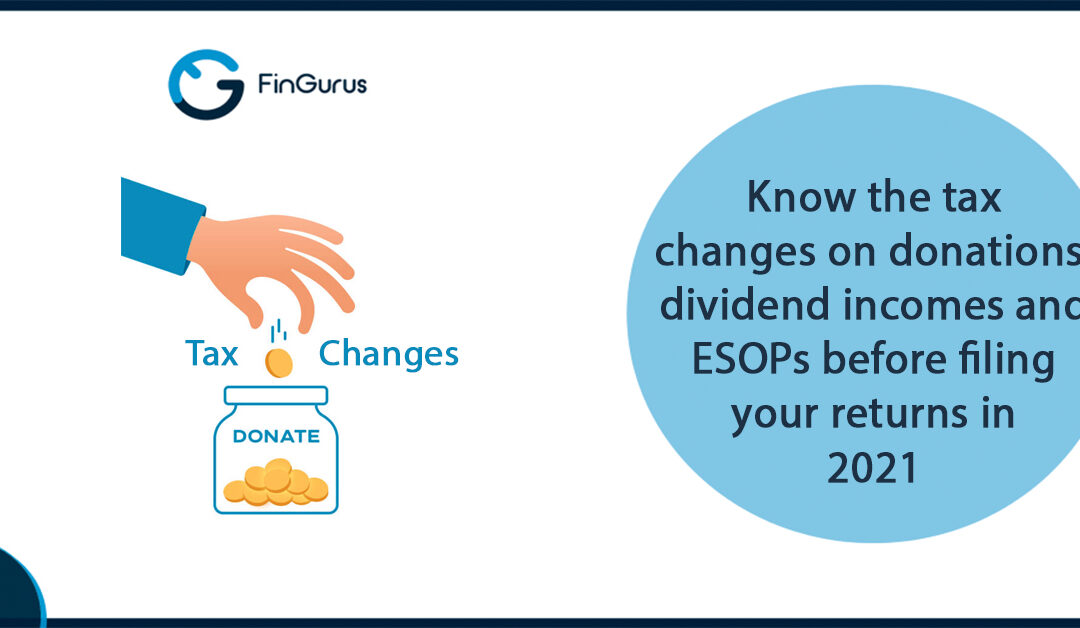Given how the second pandemic wave has devastated the chain of operations across multiple industries, the Central Board of Direct Taxes (CBDT) has revised the deadline for ITR (Income Tax Returns) for 2021.
Now that the due date for filing your returns is round the corner, taxpayers finally have the required time to understand the updated compliance burden. Besides, it’s the ideal time to get your way around the recently introduced e-filing website.
The reason? Well, it will allow individuals to file for error-free returns and make the most of the process. But, what are the latest updates, and what are the latest inclusions? Let’s find out in this blog!
Latest Tax Amendments Which Need To Be Highlighted in ITR 2021
The Updated Tax Regime
Previously, all the individuals filing for individual tax returns have been claiming multiple exemptions and deductions all along. However, the arrival of the updated alternative tax regime in Budget 2020 has revised and lowered the slab rates. As a result, the tax slabs rates ranging from 5 to 25 percent are now applicable on each successive increase of Rs 2.5 lakh, ranging from the base amount to a sum of Rs 15 lakh.
The latest update has removed over 70 tax exemptions and deductions previously offered in the existing regime. Interestingly, it relieves the salaried taxpayers from having to follow the new norm. Instead, they can choose between either of the new or existing regimes every year when filing returns.
Tax on Income by Dividend
Besides introducing the alternate tax, Budget 2020 has also introduced a tax on dividend income received via mutual funds investors. Investors will have to declare a receipt of their overall earnings over their tax return form under the “income from other sources” section.
Companies have no taxes on dividend distribution; taxes on dividends are now directly taxable to the shareholders. Companies are entitled to deduct a TDS of 10 percent for dividend value exceeding Rs 5,000. However, it goes up to 20 percent if PAN has not been provided.
Therefore, tax holders need to stay more cautious with their investments. The sum earned on the total dividend now needs to be highlighted as a quarterly break-up.
Some ESOP Receipts Won’t Be Taxable
If you’re an employee and have been allotted Employee Stock Options (ESOPs ) from your office this year, you might be saved from paying for tax. However, it will be later deferred to a future date.
Updated Rules for Deemed Residents
Previously introduced in FY 2020-2021, the deemed residents rule will also be applicable for tax filing in the year 2021-22. If any Indian resident reaches an overall income of Rs 15 lakh (from any sources other than foreign) during a financial year, they will be deemed an Indian resident.
Further, if they’re found to be not paying taxes to any other country, they’ll be treated as an ordinary resident of India and abide by the ITR rules for taxation.
Deductions Over Cash Donations are Now Restricted
The exemptions previously claimed under section 80G, now need to be a part of the tax return forms. Since donations are not a part of the Form-16, this new deduction will now be claimed to be a part of your tax returns.
Further, residents will be allowed to make donations under the rural development or scientific research category. Further, the cash donations which were previously up to Rs 10,000 have now been restricted to Rs 2000.
Know Your ITR Forms
ITR-1
- Individuals with income up to Rs 50 lakh
- Salaried income
- Income from one house property
- Income from other sources (interest, etc.) Agricultural income up to Rs 5,000
ITR-2
- Individuals and HUFs without business, profession
- Salaried income
- Income received from house property
- Income from other sources (interest, etc.) Agricultural income up to Rs 5,000
- Income under capital gains
ITR-5
- Applicable to AOP/BOI/ executor of AJP
- Gains from profession or business
- Capital gains income
- House property income
- Income from other sources (interest, etc.)
Now You Know!
Listed above were some of the most recent changes made to the ITR filing procedure for FY 2021-22. With that, we hope that you’re able to make the most of your returns, without having to compromise with the overall process. All the best!

